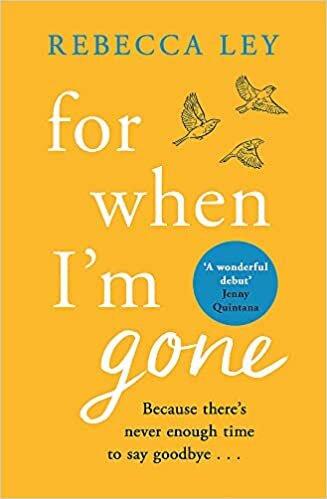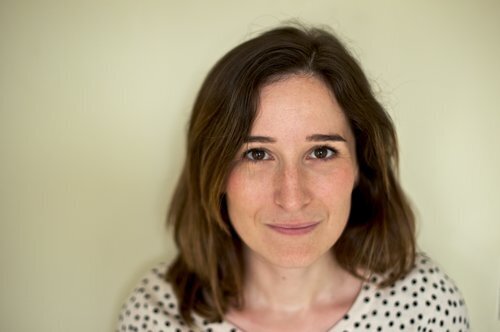EP: ‘How have you found combining motherhood with writing?’
RL: ‘Until you have childcare, I think it’s pretty impossible to write regularly. Or at least, it was for me personally. Your days are just so absorbed with looking after these tiny beings, your nights are so fractured. But once I found childcare, I have actually found motherhood quite an inspiration in terms of subject matter and motivation. That said, it can feel like there are too many browser tabs open in your mind at all times. And I find it very difficult to do any writing at all if they’re in the house. If they’re near, even if someone else is looking after them, they have the pull of my attention. The only time I can manage it if I start writing first thing, with a cup of tea, before engaging. Sometimes I can fool myself that they don't exist for an hour or two.’
EP: ‘What inspired you to come up with a narrator who’s already dead in For When I’m Gone?’
RL: ‘For When I’m Gone started as a ghost story. Haunting presented itself as a metaphor for motherhood. I used to trudge around my house, picking up discarded sippy cups and toys, feeling almost like I was haunting my own life. Which isn’t to say that I was unhappy, because I wasn’t - or not predominantly - but just that mothering involves absenting yourself, in a sense. Your desires and ambitions are no longer centre stage. Which is a weird transition, particularly in our society perhaps, but also has tremendous upsides. It can be a lovely relief not to think about yourself all the time.'
Over time, the ghost story element of Sylvia’s life was largely curtailed (although there is still a hint if you look for it!) but the sense of a narrator who is already dead remained. It was important to me that those parts are written in the present tense, in that manual form. She’s dead, you know she is - but she’s right there.
Dying is so weird - how can someone, with all their aspirations and joys and petty jealousies, cease to exist? I wanted to look at that. I was writing obituaries for my day job at the time, so the incomprehensible inevitability of non-existence was very much to the forefront of my mind!’
EP: ‘What’s the most important lesson you’ve learned as a writer?’
RL: ‘In terms of writing a novel, it’s crucial to get words on the page. You can go back and rework, but you have to get them out first. Don’t judge what you’re producing harshly - that’s for later. But there’s a caveat and that’s that you also have to try and articulate the mood of your book, even if the early stages. It can just be a feeling, an ache in your chest, that you are trying to write towards.
The other lesson has been how much of writing happens in your subconscious. Things you don’t expect will intrude and you should let them.’
EP: ‘What are you working on now?’
RL: ‘I’m ghosting the memoir of a remarkable man called Hassan Akkad. He’s a Syrian refugee and Bafta-winning filmmaker who volunteered to work as a hospital cleaner when the pandemic hit. He then persuaded Boris Johnson to extend the bereavement scheme to cleaners, porters and healthcare assistants after they were initially excluded. He’s so inspiring; it’s a complete privilege to help him tell his story.
I’m also working on my second novel for Orion.’
Thank you so much, Rebecca! We wish For When I’m Gone all the luck in the world.



